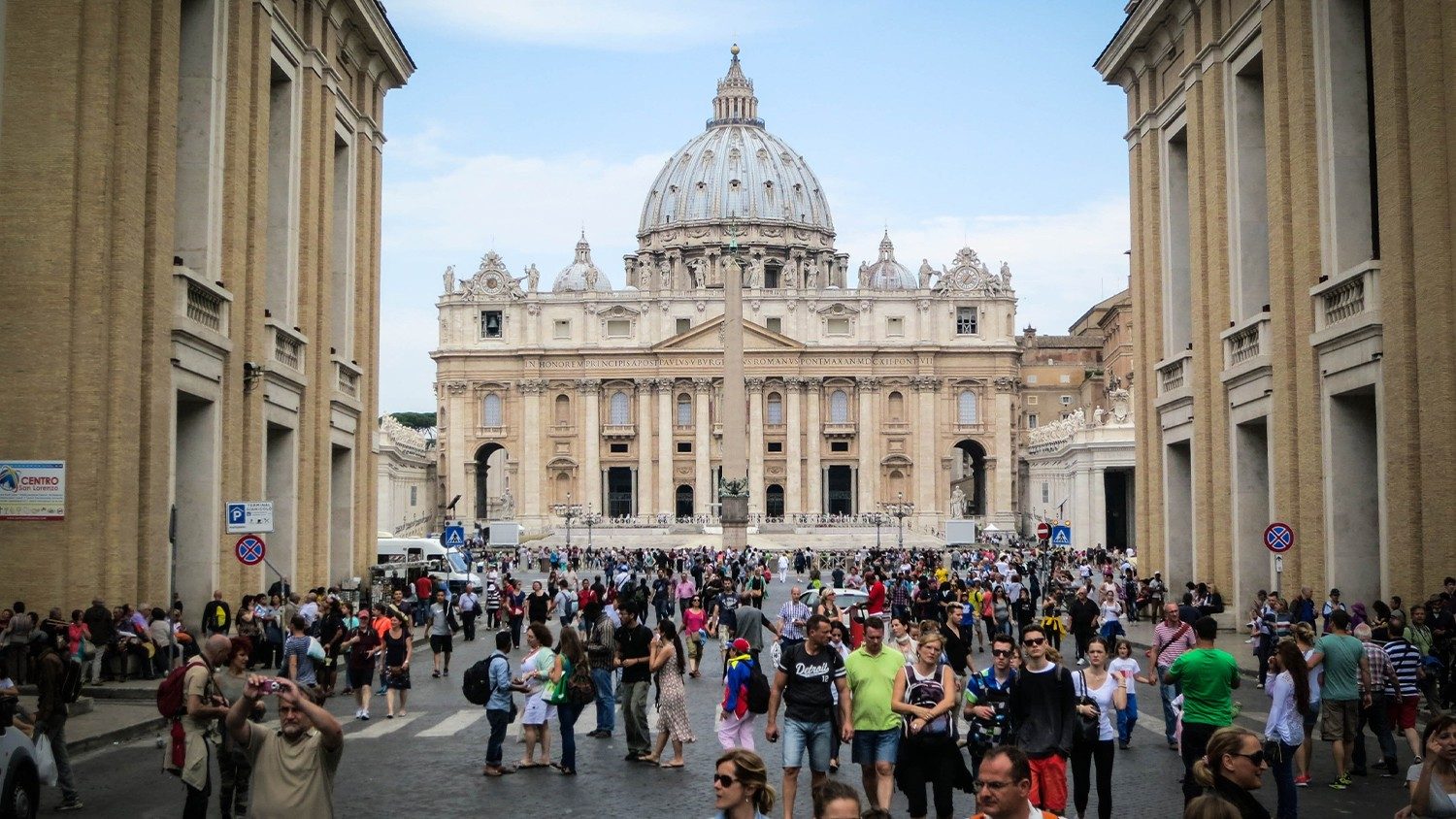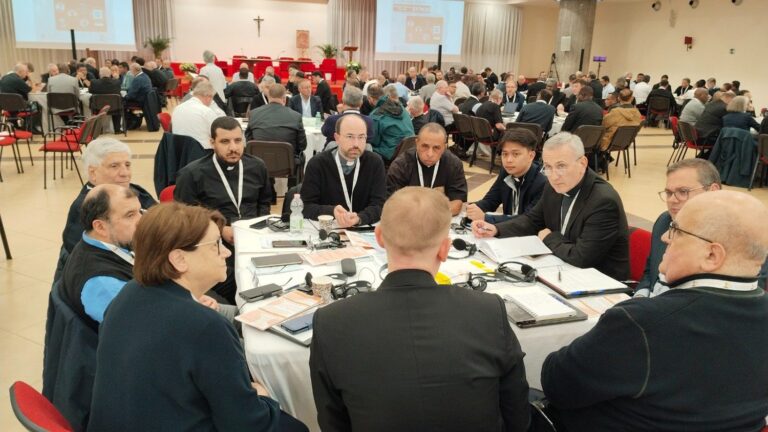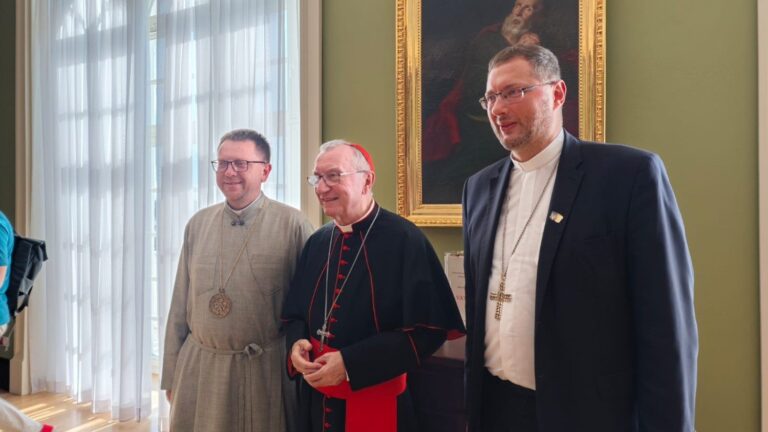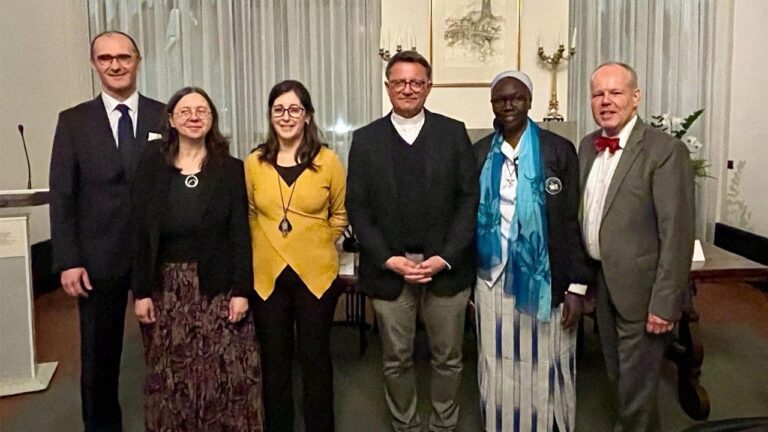‘A Jubilee grace’: Vatican announces Holy Year Indulgence
Following the solemn indiction of Jubilee 2025 by Pope Francis last week, the Apostolic Penitentiary has issued a decree which specifies the details of the indulgences that will be granted during the Holy Year.
By Christopher Wells
The Catholic faithful will have several ways to obtain the jubilee indulgence for the Holy Year 2025, according to a new decree promulgated by the Apostolic Penitentiary – the Vatican office with overall responsibility for the granting and use of indulgences.
Following the Second Vatican Council, Pope Saint Paul VI taught: “Indulgence is a remission before God of the temporal punishment due to sins whose guilt has already been forgiven, which the faithful and duly disposed Christian obtains under certain conditions prescribed. by the action of the Church which, as minister of redemption, authoritatively dispenses and applies the treasure of the satisfactions of Christ and the saints. » Indulgences are plenary (complete) or partial depending on whether they remove all or part of the temporal punishment due to sin.
Becoming pilgrims of hope
Recalling Pope Francis' invitation to all Christians to become “pilgrims” of hope, the apostolic penitentiary decree aims “to encourage the souls of the faithful and to nourish the pious desire to obtain the (Jubilee) Indulgence considered as a gift of grace specific to the Holy Year. »
Hope, says the decree, “is a virtue which must above all draw its source from the grace of God and the fullness of his mercy”. Recalling the Pope's declaration that the Jubilee indulgence “is a way of discovering the unlimited character of God's mercy,” the penitentiary said: “The indulgence (of the Holy Year) is therefore a Jubilee grace.”
Having confirmed that all other indulgences remain in effect, the Penitentiary establishes three main ways of obtaining the Jubilee indulgence: pilgrimages to any sacred Jubilee site; pious visits to sacred places and works of mercy and penance.
Pilgrimages
The first category of Jubilee locations includes the four main papal basilicas in Rome (St. Peter, St. John Lateran, St. Mary Major, and St. Paul Outside the Walls); and the Holy Land basilicas of the Holy Sepulcher in Jerusalem, of the Nativity in Bethlehem, and of the Annunciation in Nazareth; as well as cathedrals and other churches or sacred places designated by bishops in particular churches.
The indulgence can be obtained by “devoutly” participating in the Holy Mass on site, or by participating in a Liturgy of the Word, the Liturgy of the Hours (Office of Readings, Morning Prayer, Evening Prayer), Via Crucis, to the Rosary, the Akathist hymn or a penitential service including individual confessions.
Visits to sacred places
“Sacred places” described in the second category include the Roman basilicas of Santa Croce in Gerusalemme, San Lorenzo al Verano and San Sebastiano; as well as the Sanctuary of Divine Love (Divino Amore), the Church of Saint Paul of Tre Fontane and the catacombs. Special mention is made of the Churches of the Jubilee Paths linked to the member countries of the European Union and to the patron saints and doctors of the Church.
Other sacred places around the world include two basilicas in Assisi, Marian shrines in Italy, and “any minor basilica, cathedral church, co-cathedral church, Marian shrine, or any distinguished church designated by local bishops.”
The faithful are required to devote an “appropriate” amount of time during their visit to Eucharistic adoration and meditation, ending with the recitation of the Our Father, any legitimate form of the Creed, and invocations to the Blessed Virgin Mary.
Those who cannot make a pilgrimage or visit a sacred place for serious reasons will be able to obtain the Indulgence wherever they are by uniting spiritually with those who do and by reciting the Our Father, the Creed and other related prayers. with the Holy Year while offering their sufferings or difficulties.
Works of mercy and penance
Finally, the decree provides for the possibility of obtaining indulgence by performing works of mercy and penance.
They can do this by participating in popular missions, spiritual exercises or training activities on the documents of Vatican II and the Catechism, according to the thinking of the Holy Father; or by visiting those in need (“in a sense, making a pilgrimage to the Christ present in them”).
Likewise, they can propose acts of penance (such as fasting and abstinence), make donations to the poor, support religious and charitable works (“particularly for the defense of life in all its phases”) or engage in other volunteer activities.
Duties of bishops and priests
The Apostolic Penitentiary also grants bishops the possibility of giving the papal blessing “on the occasion of the main celebration of the jubilee in the cathedral and in individual jubilee churches, with the indulgence for all who receive the blessing, under the conditions usual.
The decree strongly invites “all priests” to be generous in offering opportunities for sacramental reconciliation, notably recalling the possibility of hearing confessions during the celebration of Mass. Priests accompanying pilgrimage groups outside their diocese will be granted faculties allowing them to use the same faculties granted to them in their own dioceses, while confessors in papal basilicas and elsewhere will also be granted special faculties .
Priests are invited to give penances conducive to “stable repentance” and to encourage penitents “to repair any scandal and damage” they have caused by their sins.
At the conclusion of the decree, the Apostolic Penitentiary, reminding the bishops of their responsibility to teach, guide and sanctify, “warmly” invites them “to clearly explain the provisions and principles proposed here for the sanctification of the faithful, taking into account the local circumstances, cultures”. and traditions. »
The full text of the decree of the Apostolic Penitentiary, with all the details of the jubilee indulgence, can be consulted on the website of the Holy See.






